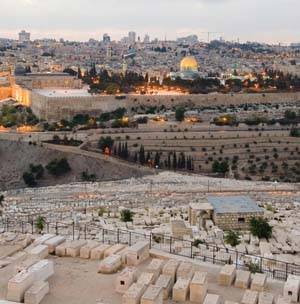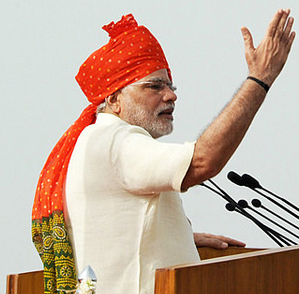"I'm a refugee from Afghanistan," I said to the Pakistani officials at the border. "No, you're a distinguished journalist and our honoured guest," they said. They gave me sweet tea as well as the kind words. I'd just said goodbye to my translator and driver, all of us trying not to cry. The driver, Haji, a white bearded veteran, has crossed frontlines and dodged rockets with seven correspondents. This is the first time he's seen one expelled. Azam, the translator, has only been in the job two months. He's keen, intelligent, hungry to learn and now faces an uncertain future.
Unpredictability is the nature of life in Afghanistan.
I've always known I could have to leave at a moment's notice, always tried not to get too attached. But still, the order to leave was a huge shock.
At 9am on Wednesday morning I was in the Taleban Foreign Ministry being given a six-month visa. Two hours later, I returned for a press conference, only for officials to beckon me over and tell me they thought it would be better for me to leave the country for a while.
If an Afghan wants to break the news that your father has died, they will say at first that he is a bit poorly. In true Afghan fashion, the real truth of my position came out slowly; that I had no options, that I was being expelled, that the BBC office was going to be sealed.
I joked with the officials. Again Afghans always joke about disaster it makes it a little easier. Twenty four hours later, I left the office. No time to say goodbyes, no time to sleep, no time to react, barely enough time to maintain the reporting and pile everything up into the car and race for the border before nightfall.
Reporting in Afghanistan may be the toughest news job in the world. I don't know, it's my first posting. Certainly, I have agonised over every word I have written. Upwards of 70% of the population listen to the BBC and you want to get the news right for them. That is an immense responsibility for the correspondent and an ever present source of pressure. My words are monitored, mulled over and criticised by both sides in the war, although with living in a Taleban-controlled area the pressure mainly comes from them. And as the only foreign correspondent in the country, I also know that I'm one of the few channels for the voices of Afghans to reach the outside world.
I've been careful too that my coverage of the Taleban, one of the most despised and condemned governments in the world, is also fair. But even tougher than the striving after accuracy and balance is the constant fear that my reporting might endanger an Afghan interviewee or source. Thank God, the worst the Taleban could do to me, a foreigner, was expel me. This expulsion has been a huge shock, but not really a surprise.
My job is to report what is going on, even issues which I knew the Taleban would hate me for revealing, namely violent crime in Kabul despite Taleban claims to have cleaned up the country; the presence of Arab and Pakistani militants in training camps despite the official denials; and the massacre of civilians by the Taleban in January. And this time, my experience that it was difficult to find an Afghan who agreed with the Taleban's destruction of the two ancient Buddhas of Bamiyan.
The Taleban have had to put up with near universal condemnation of this action, but my report that even their own people didn't agree with them was too much, it seems. That, along with an Afghan American professor who in a BBC interview called them jaahil. The term is a huge insult. It means ignorant but the sort of ignorance which Muslims believe the world suffered under before the coming of Islam. The Taleban were furious and I was the obvious target for their anger.
Several Afghans have said to me that the destruction of the Buddhas and the closure of the BBC office are similar actions. Despite drought, bereavement and the ruination of their country, most Afghans seem to have been touched by the destruction of the collosal statues at Bamiyan. It would be like the destruction of somewhere like Stonehenge in Britain. They are symbols of the nation, for many people symbols of a more tolerant past, when the rulers of Afghanistan accepted different religions and points of view, where cultures mixed along the great trading routes and the Buddha, a man of the east, could be depicted in Greek clothing.
The destruction of the statues has felt like an attempt to wipe out history. And for a country that has seen so much destruction, this deliberate demolition of something ancient and irreplaceable felt obscene. For Afghans, the BBC is also a deeply honoured, national institution. That sounds strange, but Afghans do seem to feel they own us. Whatever their politics, ethnic background or level of education, they listen to the BBC. I know that is mainly because there are few other choices in a country without television or newspapers, but still it's always moving. The small child in an orphanage who confesses the children club together in secret to buy batteries to listen to the BBC soap opera; the shy smile that breaks out on the face of a tough Taleban soldier when he discovers I'm the correspondent.
The toughness of this job has always been rewarded by the generosity of Afghans. Even in the short time since my expulsion, people have spoken of the shame they feel that I've been ordered out. "You were our guest," they said. One friend quoted lines from an Urdu poet:
Speak, because your lips are free, speak because you still have a tongue See in the blacksmith's shop, the flame is fierce, the iron is red hot, the mouth of every lock has started open Only a few more days are we obliged to rest in the shadow of oppression
After I crossed the border into Pakistan, I spoke to another old friend. "Cheer up, Kate," he said. "Don't be too upset. You've become a hero of the Afghan people overnight." It was infinitely reassuring. My commitment to Afghanistan is undimmed. My reporting will continue from Pakistan and I hope to return.
This article is reproduced by permission of BBC on-line

